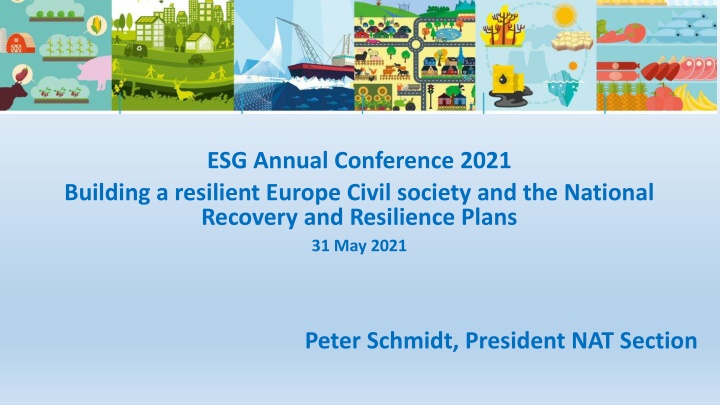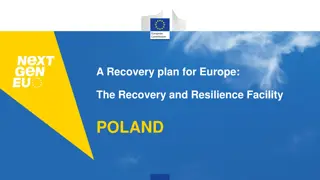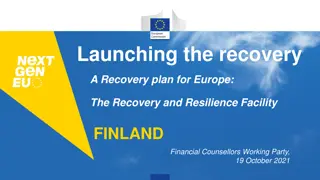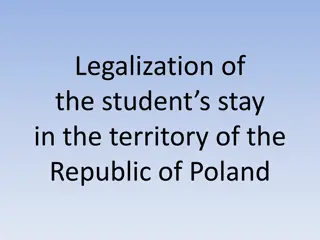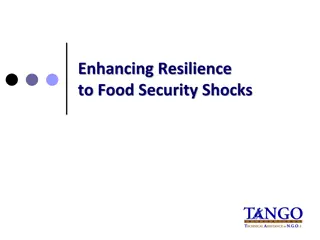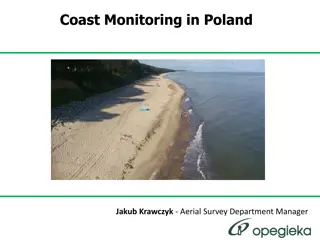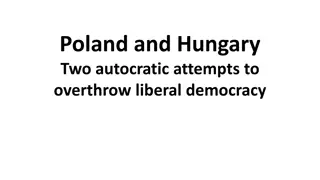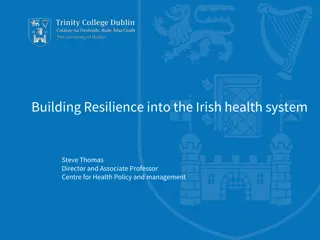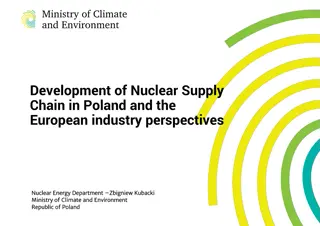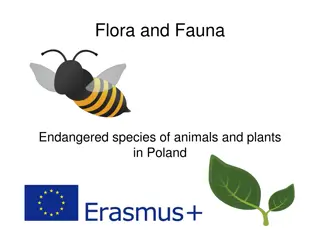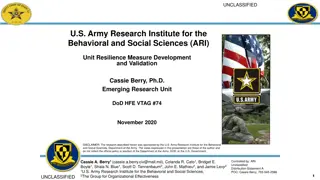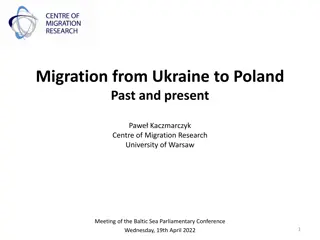Poland's National Plan for Sustainability and Resilience
The National Recovery and Resilience Plans analyze post-pandemic responses through the lens of environmental and social sustainability. The methodology includes environmental and social sustainability principles, as well as the involvement of civil society. The case studies provide insights from Bulgaria, Finland, Germany, Poland, and Spain. Poland's plan highlights positive aspects such as green energy and mobility investments but falls short on clear commitments to EU climate goals and possible support for natural gas. Socially, it covers European social rights but lacks specificity on certain issues.
Download Presentation

Please find below an Image/Link to download the presentation.
The content on the website is provided AS IS for your information and personal use only. It may not be sold, licensed, or shared on other websites without obtaining consent from the author.If you encounter any issues during the download, it is possible that the publisher has removed the file from their server.
You are allowed to download the files provided on this website for personal or commercial use, subject to the condition that they are used lawfully. All files are the property of their respective owners.
The content on the website is provided AS IS for your information and personal use only. It may not be sold, licensed, or shared on other websites without obtaining consent from the author.
E N D
Presentation Transcript
ESG Annual Conference 2021 Building a resilient Europe Civil society and the National Recovery and Resilience Plans 31 May 2021 Peter Schmidt, President NAT Section
NAT Report NAT Report - - Shifting priorities towards post Shifting priorities towards post- - COVID sustainable reconstruction and recovery COVID sustainable reconstruction and recovery Overarching goal: To promote the approach in which Member States use the opportunity created by the post-COVID-19 recovery plans to rebuild the EU economy on new foundations, better addressing environmental and social challenges. Study objectives: Examine the extent to which the post-pandemic responses adopted the principles of a wellbeing economy/SDG implementation; Provide examples of how communities and civil society contributed to the plans; Identify and review selected responses to the COVID-19 crisis and draw parallels to the action necessary to address the climate crisis.
NAT Report NAT Report Methodology: analysis based on these principles: Environmental sustainability - decoupling/economic growth decoupled from resource use, climate neutrality, clean energy transition, circular economy/ resource-efficient economy, energy efficiency and building renovation, sustainable transport/ mobility, sustainable food system, protection of natural capital and ecosystems, zero pollution, green transition, do no (significant) harm/ green oath Social sustainability - fairness, leaving no-one behind, just transition, economy of wellbeing, social resilience, equal opportunities and access to the labour market, fair working conditions, social protection and inclusion Involvement of civil society - how, what types of stakeholders, what, if any, changes were made to the draft plan to address feedback by civil society and stakeholders, how CSOs will be involved in the implementation and monitoring/evaluation phases. 5 case studies with interviews Bulgaria Finland Germany Poland - Spain (considering relative size and geographical balance)
Poland Poland The National Plan of Reconstruction and Increasing Resilience: draft published on 26 February 2021, final revised version after public consultations on 3rd May Environmental sustainability Positive: green energy and green mobility are the largest components (EUR 60 bln); support for renewable energy, in particular windmill farms, support for regional railways and cycling Less positive: lack of clear commitment to reaching the EU climate neutrality goal in 2050, no ban on using coal in the individual household sector; possibility of support for natural gas installations Social sustainability Positive: all the 20 rules of the European Pillar of Social Rights covered, support for care for young children, employment flexibility and remote work, extensive digitalisation measures Less positive: No explicit support measures for social care services or recognising their role; social economy enterprises and volunteers will not solve the problems of social exclusion Participation of civil society Positive: consultation with a broad range of stakeholders, many channels used; several postulates of NGOs clearly incorporated in the revised version; the Monitoring Committee will include representatives of CSOs Less positive: late publication of the draft and short period of consultations (5 weeks), public hearings organised at CSOs rather than the Ministry initiative; CSOs invited to the thematic working groups prior to the preparation of the first draft but quite late and only as observers
Preliminary conclusions: environmental and Preliminary conclusions: environmental and social sustainability social sustainability Environmental sustainability Positive: all the reviewed plans include measures related to the green transition; they address low-carbon economy, circular economy, energy efficiency and sustainable mobility objectives which contribute to climate goals; good practice examples include measures on renewable energy and empowering consumers, green mobility and green urban development Less positive: in most of the reviewed plans there is less focus on the natural environment or biodiversity; some of the plans (Poland, Bulgaria) lack commitment to phasing out support for fossil fuels Social sustainability Positive: all the reviewed plans include measures on social inclusion, development of digital skills and training; some plans reference the European Pillar of Social Rights and most plans provide principles for ensuring gender equality Less positive: in some of the plans insufficient measures on education and skills development e.g. in relation to the green transition (Bulgaria) and social welfare services (Germany); not always clear how gender equality will be implemented in practice
Preliminary conclusions: participation of civil society Preliminary conclusions: participation of civil society in the design and implementation of the plans in the design and implementation of the plans Positive Consultations with stakeholders were organised in all the countries reviewed though the forms, scope and impacts differ per case, Various channels of providing feedback were used including submission of opinions, online questionnaires and forms for submitting comments, conferences, public hearings; The pandemic situation resulted in a more widespread use of online tools such as webinars, which increased the participation Negative Limited timeframe for providing feedback and/or for incorporating the comments in the final version; Despite extensive consultations, lack of actual impact of CSOs on shaping the document or selection of the proposed initiatives The role of CSOs in implementation and monitoring of the plans remains vague
